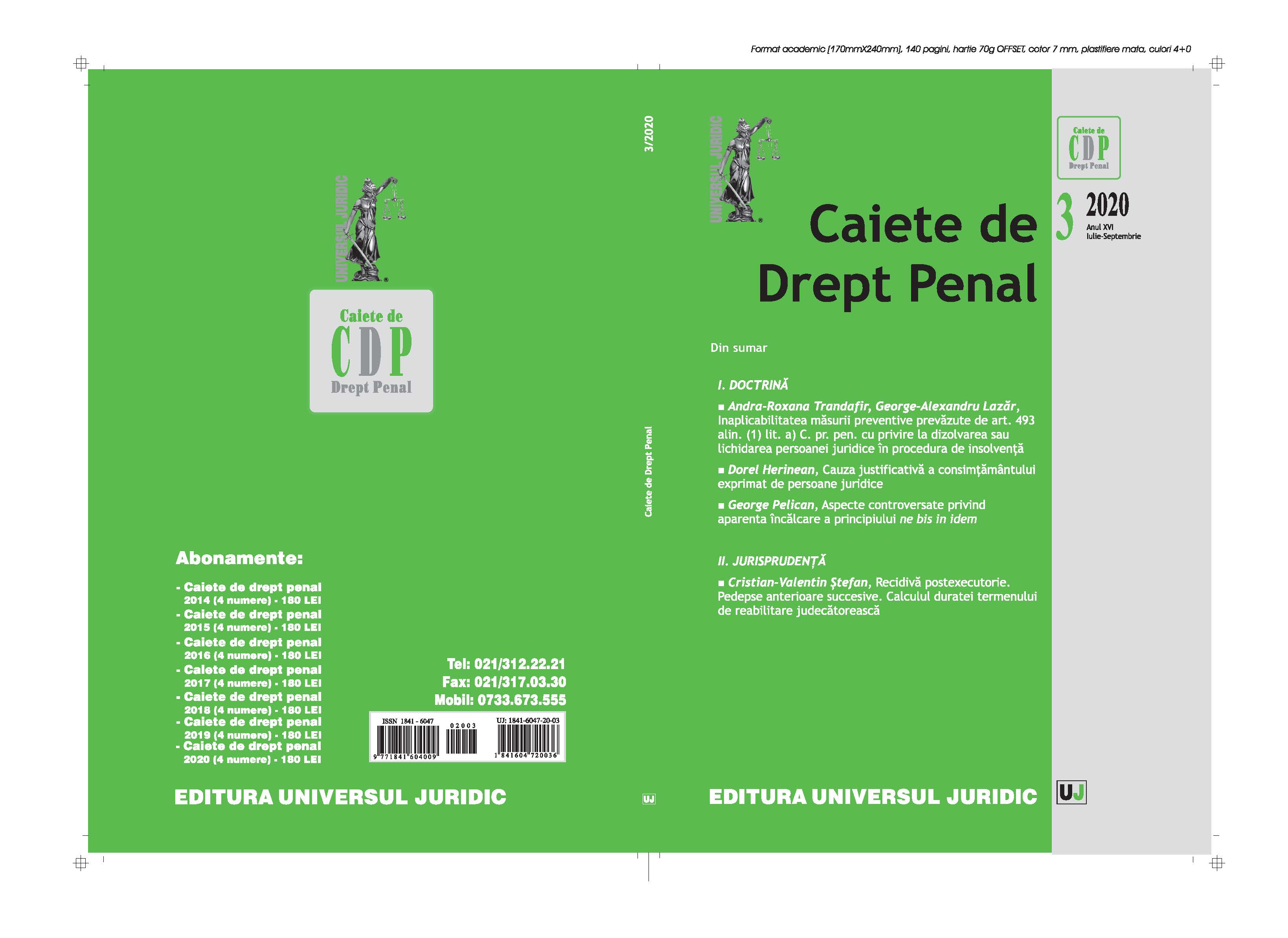Prescripţia răspunderii penale în urma deciziei
Curţii Constituţionale nr. 297/2018
The statute of limitations following Constitutional
Court’s decision no. 297/2018
Author(s): Cristiana PetreSubject(s): Law, Constitution, Jurisprudence, Civil Law
Published by: Universul Juridic
Keywords: statute of limitations; Article 155 of the Criminal Code; decision no. 297/2018, in rem effect of interruptive acts;
Summary/Abstract: This article aims to examine the effects of decision no. 297/2018, by which the Constitutional Court stated that the legislative solution provided in Article 155 para. (1) of the Criminal Code, according to which, the statute of limitations for criminal liability is interrupted as a result of the performance of any procedural step in the lawsuit, is unconstitutional. The first matter that is analysed, refers to the nature of the decision in question. In agreement with the majority opinion, we also consider that this decision is an interpretative one. Practically, through this decision, the procedural acts with interruptive effect were circumscribed, so that only the acts communicated to the suspect or the defendant will have the vocation to interrupt the statute of limitations. This aspect results mainly from paragraph 34, in which reference is made to the previous solution provided in Article 123 para. (1) of the Criminal Code of 1969, a solution that met the criteria of predictability. One of the problems raised by the ruling of decision no. 297/2018 and which was pointed out, refers to the applicability of the in rem effect of the interruptive acts of the statute of limitations, regulated by Article 155 para. (3) of the Criminal Code. Regarding the application in time, taking into account that the field of interruptive acts of the statute of limitations has been restricted, the decision can be assimilated to a more favourable criminal law within the meaning of Article 5 of the Criminal Code. Thus, we consider that the decision can be applied retroactively, making the procedural acts performed prior to its entry into force and which were not communicated to the suspect or defendant, ineffective from an interruptive standpoint.
Journal: Caiete de drept penal
- Issue Year: 2020
- Issue No: 03
- Page Range: 102-110
- Page Count: 9
- Language: Romanian
- Content File-PDF

